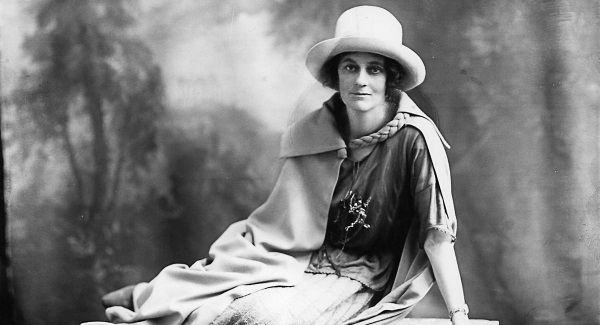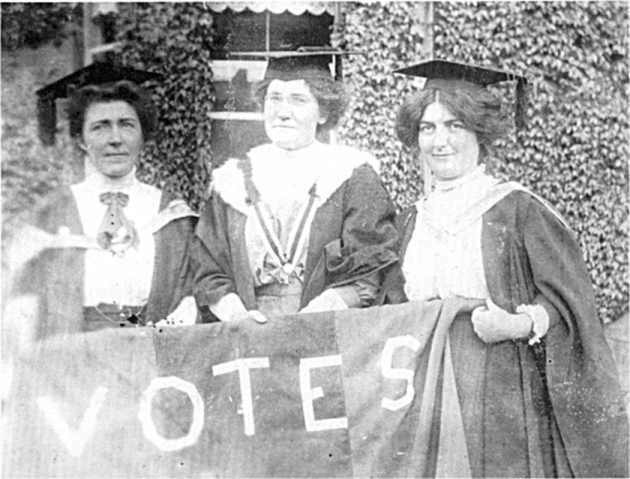
Fierce females: 6 historical Irish women who changed our nation
When speaking about Irish history, it often entails of the men who fought for the independence of our country and who created and shaped modern Ireland.
However, there are many women who have worked towards the same goals too. Each of these women have done something that changed Ireland for the better:
Constance Markievicz was the daughter of an Arctic Explorer and childhood friend of W.B. Yeats. She first became politically active when she was a student in London.
In the early 1900’s, she returned to Dublin and she joined a great number of national movements including political party Sinn Fein. In 1911, she spoke at an Irish Republican Brotherhood demonstration in front of 30,000 people, threw stones at pictures of the British monarchy and burned a British flag stolen from Leinster House.
She was jailed for one month as a result.
In 1913 she joined the Irish Citizen Army, which was a small volunteer force which was formed due to trade union conflicts and lockouts. She personally paid for food for all of the workers by taking out several loans and selling all her jewellery.
In the 1916 Rising she fought in St. Stephen’s Green as second in command for six days straight. When the fighting ended she was imprisoned and She was sentenced to death, but the judge reduced it to life in prison ‘on account of her sex’.
In response, she said, ‘I do wish your lot would have the decency to shoot me.’ After the Rising, she turned her hand to politics and was elected to the British House of Commons in 1918; the first woman to ever be elected. She refused to take her seat and instead joined the newly established Dail Eireann. She served as Minister for Labour between 1919-1922, making her the first female cabinet minister and only the second ever female government minister in all of Europe.
Rosie Hackett had a Dublin bridge named after her in 2014. She was a trade unionist, founder of the Irish Women Worker’s Union and support of the nationalist movement and the 1916 Rising.
In 1909, she joined James Larkin’s Irish Trade and General Worker’s Union and had a prominent role in the 1913 Lockout, mobilising the workers of the Jacob’s biscuit factory (where she worked at the time) to strike in solidarity with others.
She lost her job and went on to work as a clerk in the print shop of Liberty Hall. She became involved with the Irish Citizen Army and the leaders of the nationalist movement, and was trusted with highly secretive messages, errands, and tasks.
When some of the leaders were struggling to print the 1916 Proclamation (which Padraig Pearse would read on the steps of the GPO declaring Ireland and independent republic) her expertise saved the day; she was the only woman ever allowed into the printing room.
After the rising she spent the rest of her life working tirelessly in trade unionism, securing better rights for Irish workers all over the country.
Hannah Sheehy-Skeffington was born in 1877 and she was a suffragette and Irish nationalist.
She founded the Irish Women’s Franchise League and was instrumental in getting women the vote. She was also a founding member of the Irish Women Workers’ Union. It was unusual for Hanna to attend university in that time period. When she was an undergraduate, she was asked to sign a petition going to the House of Commons about women’s suffrage. That was when she became a feminist.
As an adult, Hanna worked as a teacher. She married Francis Skeffington in 1903. They took each other’s names as a mark of honour and respect. They both founded the Irish Citizen newspaper in 1912 and they also founded the Irish Women’s Franchise League alongside Margaret Cousins in 1908, a suffragette group that fought for women’s votes.
The IWFL offered a different approach to previous groups. It wasn’t easy for them because so many male politicians were against women getting a vote.
The IWFL was not just linked to suffrage, but also to nationalism, and reflected how Hanna and Cousins were both university graduates from middle-class Catholic and Protestant backgrounds.

Image: Women's Museum of Ireland
Sonia O’Sullivan was Ireland’s premier athlete and sportswoman in the 1990s. She won medals in the Olympics, World and European Championships.
She inspired a nation who suffered from a long peroid of economic hardship. Over the course of her career she racked up 8 gold, 6 silver and 2 bronze medals at the world’s most important athletic competitions, including a silver medal in the 2000 Olympic Games at Sydney for the 5000m race, gold at the 1995 World Championships in Gothenburg for the 5000m race, and silver at the same event in 1993 in Stuttgart for the 1500m.
She currently still holds the world records for 2000m at 5:25:36 and a 2-mile run at 9:19:56, both of which have remained unbroken for 20 years, as well as a total of 7 national records for various distances.
She officially retired as an athlete in 2007 and now works as a commentator for RTE Sport during their coverage of high profile athletic events.
Veronica Guerin was a determined journalist who investigated and exposed Ireland’s drug criminals. She began working in public relations in the 1980s and she transitioned into journalism in 1990, she wrote for the Sunday Business Post, Sunday Tribute and Sunday Independent.
She pursued a story regardless of the risk involved. She developed close relationships with both the police force as well as the criminals. In October 1994 two shots were fired into her home as a warning from the criminals and Guerin was given a 24 hour police escort and continued working.
Convicted criminal John Gilligan attacked Guerin and threatened to kill her and her family. And she answered her front door to a man who was pointed a gun at her head but then shot her in the leg as a threat. In 1996, she was presented with the prestigious International Press Freedom Award by the New York based Committee To Protect Journalists.
She was the first ever European journalist to be put forward for the award which was given in recognition of the value of her work internationally. Later that year two men who were allegedly working on Gilligan’s orders were following her on a motorbike, they pulled up beside her car at a set of traffic lights and shot her dead. Her death caused public outrage.
She was the most famous journalist in Ireland. Her exposes on the criminal underworld in Dublin and the violent rise of powerful drug dealers captured the attention of the nation.
Mary Robinson was the first female President of Ireland.
The Mayo native was a well established barrister and Senator before she was elected as President of Ireland in 1990. She fought for the right to the legal availability of contraception, a removal of the requirement that married women resign from the civil service, and the right for women to sit on injuries.
She passed two important bills into law; legalisation of contraception and decriminalising homosexuality. After her first term, she resigned and she became the UN High Commissioner for Human Rights.
She resigned in 2002 and she still continues to work on various humanitarian, environmental and political issues globally.
Feature Image: The Irish Revolution.ie
















